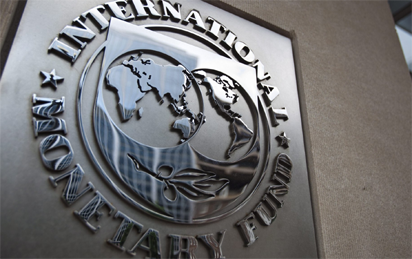The Executive Board of the International Monetary Fund (IMF) on January 27, 2021, concluded the Article IV consultation [1] with Nigeria, with sundry monetary and fiscal policies recommended for implementation in order to sustainably grow the nation’s economy.
In recent times, the IMF Directors observed that Nigeria’s economy had been hit hard by the COVID-19 pandemic.
A Press Release issued on Monday by the Board following the conclusion of the Article IV consultation with the country also indicated that there had been a sharp drop in oil prices and capital outflows while real GDP was estimated to have contracted by 3.2 percent in 2020 amidst the pandemic-related lockdown.
This is even as the statement indicated that the country’s Headline inflation rose to 14.9 percent in November 2020, a 33-month high, reflecting core and food inflation increases emanating from supply shortages due to the lockdown effected to curb infections alongside, the land-border closure and continued import restrictions.
Similarly the Board stated that the unemployment rate reached 27 percent in the second quarter of 2020, with youth unemployment at 41 percent.
It expatiated: “The Nigerian authorities acted swiftly to adopt a pandemic-related support package equivalent to 0.3 percent of GDP in the 2020 revised federal budget despite limited fiscal space. External vulnerabilities due to lower oil prices and weak global demand have increased, with the current account remaining in deficit in the first half of 2021. In April 2020, Nigeria received IMF emergency financial assistance of $3.5 billion under the Rapid Financing Instrument to help cushion the impact of the pandemic.
“Socio-economic conditions have deteriorated, with rising food inflation, elevated youth unemployment, mass protests in October 2020, and surveys show worsening food insecurity with a significant impact on the vulnerable.
“Risks are tilted to the downside and include the resurgence of the pandemic, security situation and unfavorable external environment. Capital outflow risks arise from the record-low domestic interest rates and large foreign holdings of domestic securities. On the upside, recovering oil prices and completion of the Dangote oil refinery could catalyze more domestic crude oil production and boost growth”, the Directors added.
Based on their assessment, Executive Directors agreed with the thrust of the staff appraisal and commended the Nigerian authorities for the measures taken to address the health and economic impacts of the COVID-19 pandemic which have exacerbated pre-existing weaknesses.
On the way forward for Nigeria, the Directors emphasized the need for urgent policy adjustment and more fundamental reforms to sustain macroeconomic stability and lift growth and employment.
This is even as they welcomed notable reforms undertaken in the fiscal sector, including removal of the fuel subsidy and steps to implement cost-reflective tariff increases in the power sector.
However, they stressed the need for significant revenue mobilization to reduce fiscal sustainability risks, relying initially on progressive and efficiency-enhancing measures with higher tax rates awaiting a more sustained economic recovery.
While highlighting the need for improved social safety nets to cushion potential negative impacts on the poor, the IMF chiefs noted that multiple rates, limited flexibility, and foreign exchange shortages were posing challenges.
They recommended a gradual and multi-step approach to establishing a unified and clear exchange rate regime with the near-term focus on allowing for greater flexibility and removing the payments backlog.
The Directors observed that the accommodative monetary stance remained appropriate in the near term, pointing out that tightening may be warranted if balance of payments or inflationary pressures were to increase. In the medium term, the monetary policy operational framework should be reformed and Central Bank of Nigeria (CBN) financing of budget deficit should be phased out in order to reduce inflation.
While welcoming the resilience of the banking sector, Directors called for continued vigilance to contain financial stability risks. They noted that COVID-19 debt relief measures for bank clients should remain time-bound and limited to those with good pre-crisis fundamentals.
The Directors welcomed recent progress in structural reforms and canvassed the imperative for continued reforms aimed at promoting economic diversification and reducing the dependence on oil and increasing employment.
In addition, they encouraged strengthening governance and anticorruption frameworks, including compliance with AML/CFT measures. Directors also welcomed the ratification of the African Continental Free Trade Area and underscored that implementing trade-enabling reforms remains critical to rejuvenate growth.






